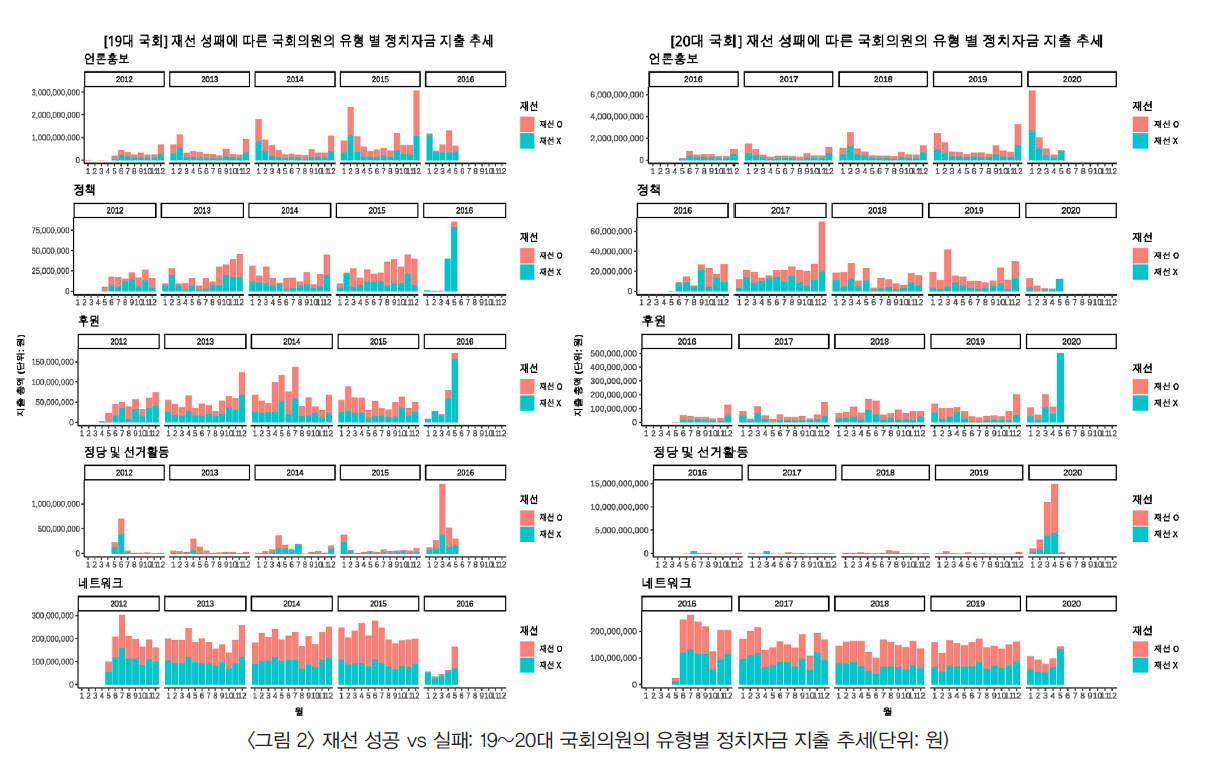Download
Abstract
How does money affect the re-election of politicians in South Korea? Provided that the representatives’ primary goal is to be re-elected, they are likely to strategically allocate political funds, one of the most critical political resources. In this regard, this paper empirically investigates how different patterns of political fund spending are related to the odds of being re-election based on the 19th and 20th legislators’ expenditures of political funds. What is worth noticing is that this paper deals with spending patterns of political funds other than money directly raised for election campaigns. The results show that the more representatives spent, particularly in party competition and election-related categories, the higher was their chance of being re-elected. Furthermore, this effect was more prominent among incumbents whose parties held hegemonic dominance in their districts, yielding lesser between-party electoral race but closer within-party race in primaries. Overall, this paper broadens our understanding of the role of money in Korean politics, substantiating that even money for daily political activities can help incumbents maximize the odds of re-election.
[Figure 2] Re-elected (pink) vs. Failed (blue): 19th-20th National Assembly Members’ Trends in Political Fund Expenditure by Category

Citation
Kim, D.W., and Hyowon Kim. 2022. “Strategic Allocation of Political Fund and Re-election of Incumbents in South Korea.” Journal of Korean Politics 31(2): 57-91. https://doi.org/10.35656/JKP.31.2.3 .